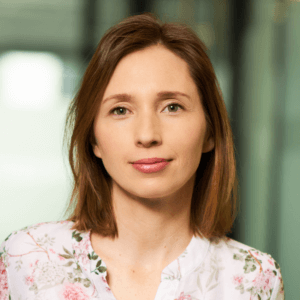Doing business in Poland: day-to-day business operations (part 4)
The previous articles in the current series covered issues that are relevant in deciding whether to establish a foreign company’s presence in Poland and seeking financing from the EU: setting up a company in Poland, employee recruitment to meet subsidized project criteria and know-how transfer within capital groups. For the picture to be complete and all the pros and cons fully known, it is worth looking at a company’s operational phase.
Location and technical resources
A company seeking public funds must ensure it has adequate space for running the project – office space, technical infrastructure or research laboratory, depending on project type. Since the level of support for investment projects varies by region, it is advisable to choose a location that will help leverage the amount of support sought. This is not a major consideration for R&D projects. At the time the application is made, the applicant need not provide proof of ownership nor a lease agreement for the space used in running the project. What is important however are preliminary guarantees, e.g., signing a non-binding conditional lease agreement.
As well as typical office infrastructure, the company must also have access to infrastructure suited to project needs. For example, R&D IT projects call for professional computer equipment or specialist software. In order to show commitment to carrying out the project, the company must have at least some of the required resources and a realistic plan of procuring the remaining part.
In choosing project location it is worth going into cooperation with organisations that support innovative enterprises, the so-called innovation centres. Such organisations are concerned with transfers of technology, provision of pro-innovation services and cooperation with business enterprises. Innovation centres include: technology parks, science parks, science and technology parks, industrial and technology parks, technoparks, technological incubators, technology transfer centres, and innovation promoting centres. It becomes increasingly difficult for such centres to remain distinct in the face of a growing interdisciplinary nature of business activity today. The goal these organisations set for themselves is promotion of innovation in product and process development. By entering into cooperation with innovation centres, companies can benefit from their training, consulting and financial services, and lease the required infrastructure.
Administrative compliance
Besides having to secure strictly technical resources, company management must keep in mind all the administrative requirements the company has to comply with in running its business. One of the fixed business costs is company accounting. We recommend using an accounting firm which will take care of all the compliance issues for the investor, such as registration for VAT and timely tax return and employee registration filing. This is important because the tax authorities in Poland accept only Polish language documents. Doing business with the Polish tax authorities has been digitalized to a large extent, which means the investor should use the appropriate tools to provide the required information.
Another important issue to remember is disclosure for the purposes of the Central Register of Beneficial Owners of names of natural persons who are the real owners of the company. For the board of directors, this means naming, under penalty of criminal sanctions for false statements, the actual people who are the beneficial owners regardless of how complex or multi-tiered the ownership structure is. The additional complication is the narrow window of just 7 days within which to notify any beneficial ownership changes. Thus, if, say, a sale of shares in the US or another country results in changes at the top of the ownership structure, the information must be reported to the Central Register of Beneficial Owners in Poland within the 7 days. Failure to do so carries a penalty of PLN 1,000,000.00 (approx. EUR 250,00.00) for the company. A good solution here is to implement group level procedures designed to facilitate effective transfer of this type of information.
Since many government databases have been digitalized (VAT, beneficial owner, financial reports, etc.), a member of the board of directors must have a Polish ID number called PESEL or use a qualified electronic signature. The latter option is more convenient in use and easier to obtain. The qualified electronic signature need not be issued in Poland but must be compliant with the eIDAS EU Directive. All providers of such signatures are listed on this EU page. It is worth keeping this in mind before members of the board are elected because they will have to sign the first documents within 7 days of being elected.
Sectoral cooperation
Day-to-day business and transfer of know-how are made a lot easier through sectoral cooperation. It is worth taking advantage of any institutional ways of supporting innovation, such as:
1/ Clusters – groups of cooperating and competing companies, specialized distributors in related sectors and sector-specific institutions which create conditions for strengthening cooperation between cluster members. The cooperation stimulates particular sectors and drives them to look for innovative solutions. A list of such clusters in Poland has been prepared by PARP. Some clusters have the status of National Key Clusters (NKC). The clusters jointly make up platforms for cooperation and exchange of experiences which strengthen the competitive position of the Polish economy. There are currently 16 NKCs in Poland (KKK catalogue), 2020).
2/ Digital Information Hubs (DIH) – the hubs support the national and regional digitalization strategy and a shift to Industry 4.0. DIH are principally focused on such solutions as 5G, artificial intelligence, industrial internet of things, building information modelling and cloud processing. The hubs help companies in implementing digitalization by updating them on the latest developments, giving demonstrations, training and education, consulting and implementation processes. There are 5 digital information hubs in different regions in Poland: (1) VoiceLab.AI, (2) Krakowski Park Technologiczny, (3) Instytut Łączności, (4) Fundacja UAM, (5) Uniwersytet Przyrodniczy we Wrocławiu.
The aim of the EU’s Digital Europe Programme for 2021-2027 is to expand the digital technology and infrastructure and to make the member states’ public administration and private sector (in particular small and medium-sized enterprises) embrace digital technology. To achieve this aim, the EU has started selection of Digital Information Hubs (eDIH) that will be responsible for supporting digital transformation. At the end of March 2021, 25 Polish hubs 25 Polish candidates had been selected to act as eDIH.
Read more:
Listen






